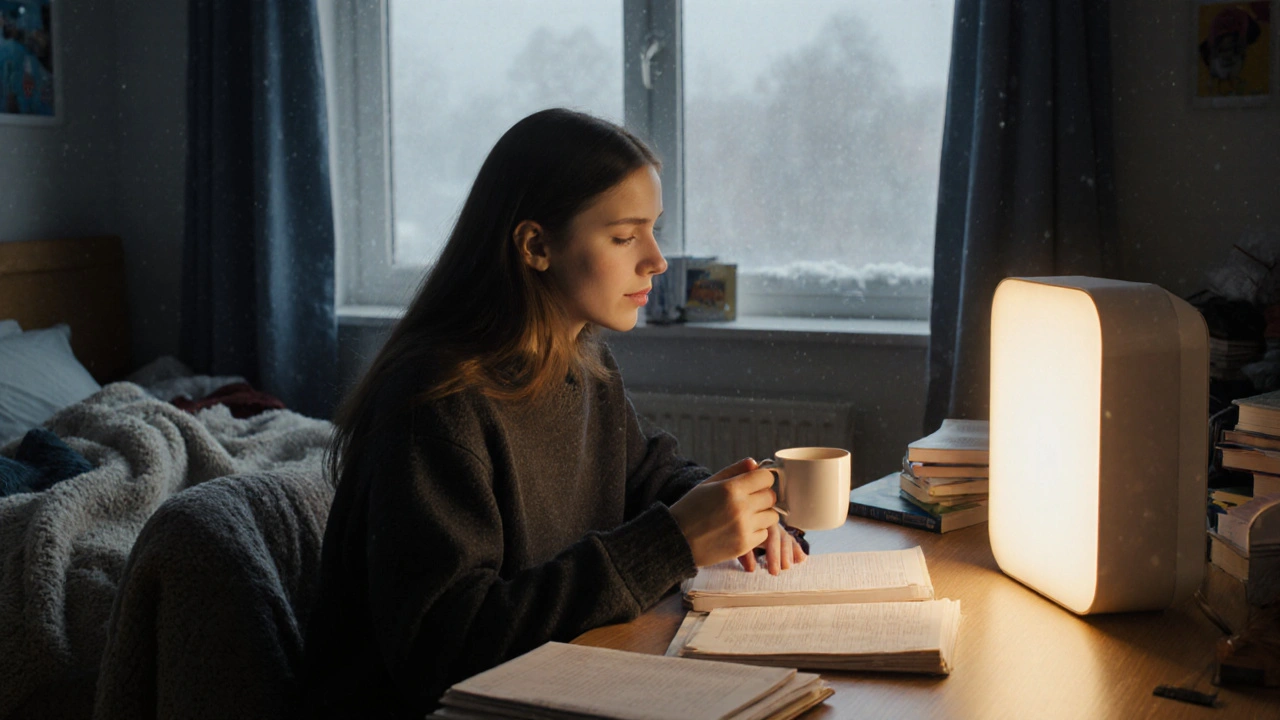Winter Depression: How UK Students Cope with Seasonal Mood Drops
When the days get short and the light fades, many UK students start feeling heavier—slower, quieter, harder to get out of bed. This isn’t just laziness. It’s winter depression, a seasonal drop in mood tied to reduced sunlight and colder weather, often called seasonal affective disorder or SAD. Also known as seasonal affective disorder, it’s not a weakness—it’s a biological response to the environment, and it hits students hard during exam season when sleep and sunlight are already scarce.
Winter depression doesn’t just make you feel sad. It steals your focus, drains your energy, and makes even simple tasks like attending lectures or cooking a meal feel impossible. For students, this lines up with the darkest months—November through February—when lectures run late, campus lights come on early, and the sun disappears by 4 PM. Studies show that up to 1 in 3 students in northern UK cities report significant mood drops during winter. The problem isn’t just weather. It’s the combo: less daylight, more stress, less movement, and diets full of carbs and caffeine to keep going. The good news? Small, daily changes make a real difference. Getting outside for 20 minutes before noon, eating foods that support brain chemistry, and using light therapy boxes aren’t just tips—they’re tools backed by research.
Related to this are mood and diet, how what you eat directly affects serotonin and dopamine levels, which drop in winter and worsen low mood. Foods rich in omega-3s, vitamin D, and tryptophan—like eggs, oily fish, nuts, and bananas—can help stabilize your mood without pills. Then there’s sunlight deficiency, a direct cause of winter depression, since your body needs natural light to regulate sleep, energy, and hormones. Many students stay indoors all day, only stepping outside at night under streetlights. That’s not enough. Your brain needs morning sun to reset your internal clock.
You’ll find posts here that don’t just talk about winter depression—they show you how real students handle it. From using free university counselling to swapping late-night caffeine for evening walks, from setting up light therapy lamps in dorm rooms to eating better without spending more, these are practical fixes that work between lectures and deadlines. You won’t find fluff here. Just real strategies from students who’ve been there, and the science behind why they help.
Published on Oct 22
0 Comments
Learn how light therapy and daily routine can help UK university students manage seasonal affective disorder. Practical, science-backed strategies for fighting winter depression on campus.
